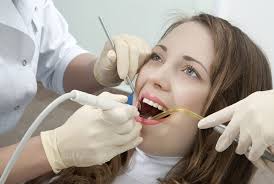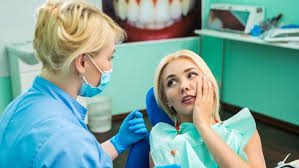Questions to Ask During Your Dermatology Appointment
Preparing a few key questions for your next dermatology appointment can maximize your time and provide you with some useful education and skin care tips. Here are the top 5 questions to ask your dermatology provider:
What do you think of this changing mole?
Your dermatologist wants to know if you have noticed changes in a mole or if you have developed a new spot that has never been there before. A change in size, shape, or color could signify that the mole is potentially concerning for cancer. Also, if a spot becomes tender, itchy, scabs or bleeds, your dermatologist may recommend a biopsy. After age 40, you should not be developing new moles. If you notice a new spot that was never there before, show your dermatologist.

What changes should I look for in my moles?
It is easiest to follow the acronym “ABCDE” when considering what changes to look for in your moles.
- Asymmetry = one half of the mole is unlike the other.
- Borders = the edges of the mole are cloud-shaped or uneven.
- Color= if there are more than one color within the same mole.
- Diameter = the mole is larger than the size of a pencil eraser.
- Evolving = when a mole begins to change in size, shape or color, or begins to itch or bleed.
Not all of these changes have to occur for the mole to be suspicious. Even just one change in a mole may be concerning for skin cancer. We suggest that you perform a monthly skin check on yourself and see a dermatology provider yearly for a full body skin exam. Remember, regular skin exams can help find skin cancers early, when they are easier to treat.

What should I expect from my medication?
Have you ever been disappointed after using a medication, only to find that it did not solve your problem? Depending on the diagnosis, some skin conditions may be cured with medications, while others are just controlled with regular medication use. Also, some medications may improve symptoms within a few days, whereas others may take several months to improve the condition. Ask your dermatologist what your expectations should be concerning your medication. You may consider asking questions such as: How long will my medicine take to start working? Should I stop it if it clears up my skin condition? What side effects should I look out for?
What sunscreen should I use?
Living at high elevation can take a toll on our skin. Ultraviolet(UV) light exposure increases about 5% per 1,000 feet of elevation, which means that we have 30% greater UV exposure in Colorado Springs than at sea level. Even daily activities like driving to work or walking your dog can expose your skin to damaging UV rays. Your dermatologist can recommend excellent sunscreens for daily use and sunscreens that work best at the pool or during your favorite sport. If you have sensitive skin and have had reactions to sunscreens in the past, there are several great allergen-free options available.

What is the best moisturizer for dry skin?
Not all moisturizers are made the same. Lotions are water-based and best for those who do not have dry skin. Creams and ointments, especially those containing ceramides, are oil-based and work better to trap moisture in the skin and replenish natural skin oils. Your dermatologist can make specific cleanser and moisturizer recommendations based on location and your skin type.
Questions You Should Ask When Choosing a Dermatologist
Whether considering virtual dermatology care or services in a brick-and-mortar clinic, we encourage patients and providers to investigate their options so they can make an informed decision.
Here are 10 questions we suggest as a starting point.
- Will my care be provided by a board-certified dermatologist? Where did your dermatologists receive their training? Are they licensed to practice in my state?
- If I give my permission, will the dermatologist work with my primary care physician or other healthcare providers and share my medical information with him or her? Do you comply with HIPAA standards for sharing and confidentiality?
- Besides photos of my skin problem, do you also require my medical history and a description of my condition and symptoms?
- After the initial assessment, will I have access to the dermatologist so I can ask follow-up questions?
- What happens if I have something serious – like skin cancer? Or what if I need surgery or other intensive in-person follow-up? Can you refer me to a qualified expert in my area?
- How soon will I receive a diagnosis and treatment plan after I have submitted my information?
- Are your services covered by my insurance?
- What if my skin problem needs to be evaluated by a subspecialty expert, such as someone who specializes in skin cancer or pediatric skin problems?
- What if I need a prescription? How can I be sure it won’t interact with something I’m already taking?
- Where can I go to find an independent, objective overview of your physicians? For example, are your doctors profiled on HealthGrades?


